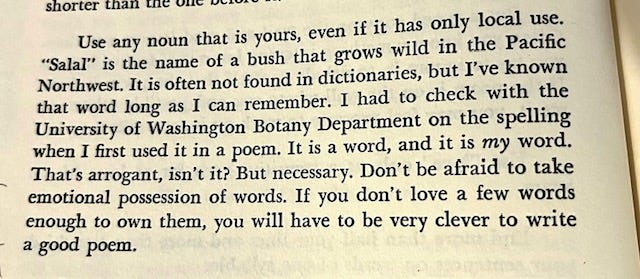My writing zone in winter months, now coming to an end with spring.
~~~~~
Thank you to those who made the decision to “go paid” this past month. It’s made a difference: it’s made spring happen!
~~~~~
Mini-workshops
All right! Time to make this happen, too. I’ve received even more feedback for possible directions. (And it’s not too late if you want to fill out the questions I posted, and email me with your thoughts and ideas.)
In the next week or so, I’ll be posting pieces on workshop groups—forming and maintaining—and what workshopping can look like, as well as sets of questions (my thoughts as well as all your suggestions—thank you!) We’ll kick off with posting and discussing by mid-month. So write, write, write…
For those of you who do not want to share work, the lists of questions will be useful in approaching re-writing solo.
Genres
We need to keep this fairly open as there are not enough of you (yet!) to create groups for each genre that you’ve expressed interest in. (At least, not in terms of those who responded. There are more than 75 paid subscribers here, so in truth, there are “enough.”) I’m hoping more will emerge from those who have not yet let me know.
Many of you are quite happy sitting back, getting your writing done, reading posts, sipping coffee or something stronger… and that’s just fine! We’re not about to turn the Unschool into a deadlines-and-grades deal! It’s still—always—about the writing.
I’m going to open a post for each genre that we’ll look at: short fiction; nonfiction/memoir; poetry; picturebooks; and novels (including YA here, and even MG). Short and long (novel) fiction do need two separate groups. Some of you are working to move from writing short fiction to long. I’ve written a piece in the past about the differences between these two, but am putting together another post about the transition from one type of writing to another—short to long—and how to create that without simply “padding”; this question came up a few times. In each genre-specific post, I’ll compile links to the past posts that speak to that area, as well as new thoughts.
Posting work - NOTE
As we did with the “holiday writing” course, I’ll ask you to email your work to me to post, so that each piece has its own thread—otherwise, it’ll become confusing. (alison@alisonacheson.com)
In the email subject, please let me know what genre it is.
Feedback
Feedback can come from any paid subscriber, not necessarily people who are posting in that group. Feedback does not have to be long and involved; it can be a brief thought, a point or two. If a number of people post feedback, the cumulative effect of “a point or two” will be solid. You might read others’ comments and post either a thought that has not yet been expressed, or a flip-side of something posted. And respond to other’s words. It’s always good to have a variety of feedback; it can give a writer a new way to see.
In the responses I had from you-s, there’s a real breadth of types of feedback wanted! Altogether, it made me think we need some sort of easy system, so that you don’t have to post lengthy spiels about what you’re hoping for!
Especially with poetry, there’s often a desire just to know what is working, and not to hear about possible changes. (Especially that dreaded line: “If this was my story, I would do such and such…”!)
Then too, there’s a hunger for what some have called “tough” feedback—in other words, a willingness to hear things that might not be easy to say or to absorb. (Respect for both writer and the work is key here.)
The Unschool has writers from the very new to the published. Because art and artists are constantly evolving, I have no issues with throwing all in together. Every project takes us back to some kind of beginning even as we can recognize experience.
I’d like to come up with a functioning way to indicate just what kind of feedback you want, and I’ll post a reminder of how this will work with each genre grouping. (If you see some possible fine-tuning of this—below—please let me know. We can discuss in the comments.)
Think of a stop-light: red, gold, and green. And if you choose to use this system, you can note the colour next to the title.
RED: Let the writer know what is working (and it’s often useful to say WHY you think it’s working)
GOLD: Let the writer know what is working (and why);
and add mirroring—that is, letting the writer know of any questions you are left with, points of confusion, or simply stating your response (e.g. whose dialogue is this?; I’m not clear about the setting here; the use of second person here made me feel a bit removed)
GREEN: Let the writer know what is working (and why);
add mirroring (as above);
and also add letting the writer know of any thoughts or ideas about possible changes.
You might—for instance—let the writer know things such as what you were expecting to happen. Or some really random thought that popped into your head as you were reading; honestly, it can be useful to hear about left-field things. Often, for a writer, such ideas can cause some other idea to come about. So an “answer” does in fact come from their own self, but via the extemporaneous thought of the reader. It’s hard to say something is “extemporaneous” when you’re writing your thoughts, but if you are truly “writing your thoughts” as they come, then yes, it is.
Writers, please feel free to post any direct questions you have either at the beginning of your work, or at the end (depending on whether you want the readers to have the questions in mind BEFORE they read, or as retrospective thought.)
I think once we start working with the three part, red, gold, green system, as well as the option to ask questions, it’ll become second nature. And, of course, feel free to simply post, no “colour code,” no questions… and see what comes! I will leave that to you; I just want to set out options!
As time goes on, I’m hoping that we might make up small groups of those who post and respond to each others’ work. Especially for those of you working on longer pieces, who really are feeling a need for a functioning writing group.
And as I did in the late fall “holiday writing” workshop, I do not post my responses until at least a few of you have weighed in. And sometimes all of us might need a bit of time—that’s okay! It means we are putting together thoughts. The deliberation is positive!
Questions? Post in the comments section.
I’m very excited about getting this going!
~~~~~
Prompt
In the book we looked at, The Triggering Town, (see link below in the re-cap of March posts), Richard Hugo has a chapter he calls “Nuts and Bolts.” It’s full of his ideas of what makes for stronger writing—and your stronger writing.
Let’s take two of his points and combine. The first is about what words are yours. I’m going to ask you, for the purposes of this prompt, to write down three words that you love—words that resonate and inspire you. (No, you do not need to tell us, or explain, the words—they are yours.)
Here’s the paragraph (p. 40):
And the second point, is:
Make sure that each sentence is at least four words longer or shorter than the one before it.
So your work is to use those three words that resonate, that you love (yes!), and create a piece one to three paragraphs in length, working with sentence length as Hugo has suggested. It can be a piece of flash fiction—complete—or a vignette, a description… whatever you want to write and share.
Let’s see how rhythm works in the sentences, with this focus.
~~~
March articles - a recap
The first of the month newsletter shared a Q&A with Cara DiGirolamo about her background in linguistics, as well as a peek at the Joy Kogawa House, and writer Gail Nyoka’s WIR there. Did anyone check out the fact that the House is now opening residencies to emerging writers?
The March prompt was based on a couple roles of “conversation dice” and several of you posted responses… one of you even did a re-write! (Which I missed notification for, and have to apologize; I am now looking at it.) The monthly prompts are open to all subscribers—I only ask that you keep them in-house and not share them. (Alas, Substack doesn’t give me the option to make a post “unshare-able.”) The reason for this is that some of you might want to try to publish these pieces, and if they go beyond the bounds of “workshop,” you might not be able to. so please respect this with both your own and others’ works—thank you!
There was a post about the “need for forgiveness” in stories. This can be such a useful perspective. For life as well as for writing…
And a review of another writing book this month—this one written by poet Richard Hugo. Poet, yes, but his thoughts are for anyone who cares about words.
Repetition—the type you want to be aware of to edit, and the types that are useful, and the reasons it might be useful—in this piece.
A final piece for the month, about “what is experimental fiction?” in answer to a paid subscriber’s questions.
I posted a link to an Anne Tyler interview, too—she rarely does these!
And thoughts on where we’re going. (This piece was followed up by two threads to gather more thoughts from all of you, here for types of workshops, and here for workshop questions/format.) It’s not too late to add further thoughts.
~~~~~
And that’s it for now!
Happy writing, and
Peace—
Alison
and do check out the new Substack app, if you haven’t already:







Love love LOVE the Red, Gold, Green scale of workshop feedback!!! This is so clear and so simple. It allows us to ask based on the position the piece carries in our ‘need’ for feedback, including asking for ‘more’, at a different level, perhaps in subsequent drafts, based on the reader’s initial response. Thank you!
Excellent! Really looking forward to this workshop series.